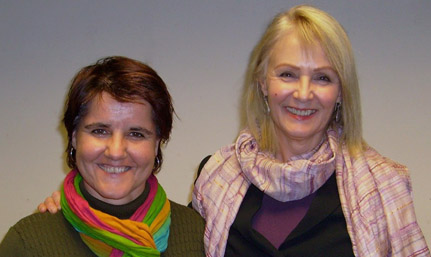Latest News Archive
Please select Category, Year, and then Month to display items
12 October 2020
|
Story Dr Cindé Greyling
|
Photo Supplied
 Exercise and nutrition can work wonders for your mental health – you don’t even have to ‘feel like’ or ‘enjoy’ moving around and eating well for it to work – it does its thing anyway.
Exercise and nutrition can work wonders for your mental health – you don’t even have to ‘feel like’ or ‘enjoy’ moving around and eating well for it to work – it does its thing anyway.
Nowadays, people talk about mental health like it is the common cold – which is good! But do you know what it really means? Being mentally healthy does not only refer to the absence of a mental illness but includes your emotional and social well-being. One would almost want to add physical well-being too, since a healthy body does indeed support a healthy mind. However, since so many people consider themselves ‘mental health experts’, some myths have been sold as truths.
Myth #1 – You are doomed.
Nope. Never. You are never doomed. There is always help. Mental-health therapies range from self-help, talk therapy, medication, to hospitalisation in some cases. Somewhere on this spectrum of treatments, there will be something that works for you. But you must be willing to get the help and do the work. For starters, exercise and nutrition can work wonders – you do not even have to ‘feel like’ or ‘enjoy’ moving around and eating well for it to work – it does its thing anyway.
Myth #2 – It won’t affect you.
It may. Research suggests that one in five people may suffer from a mental illness at some point in their lives. Being well now does not mean that it will stay that way. Biological and environmental factors both impact your mental health. Hopefully not, but at some point, you may experience an event that affects your mental health.
To remain integrated in a community is always beneficial
for anyone suffering from a mental or physical condition.
Myth #3 – Someone struggling with mental health must be left alone.
Hardly! To remain integrated in a community is always beneficial for anyone suffering from a mental or physical condition. You do not need to fix them, but to remain a friend. Continue to invite them, even if they decline. Do not judge, and do not try to understand. Just stay around.
Go and be kind to yourself, and to those around you.
Senior professor launches new book in London
2013-05-13
|

|
Alejandra Boni (left) is an associate professor at the Universidad Politécnica de Valencia in Spain and Melanie Walker is a Senior Research Professor and Director of the Centre for Higher Education and Capabilities Research (CHECaR) at UFS.
13 May 2013 |
Melanie Walker and Alejandra Boni (Eds.) were hosted by the Institute of Education at the University of London, in April to launch the publication of their new book, titled: Human Development and Capabilities: Re-imagining the university of the twenty-first century (Routlege).
In the face of reductionist and “thin” human capital approaches to higher education globally, the book imaginatively applies a theoretical framework to universities as institutions and social practices from human development and the capability approach. The book attempts to show how universities might advance equalities rather than necessarily widen them, and how they can contribute to a sustainable and democratic society.
Picking through the capability approach for human development, in relation to universities, this book highlights and explores three main ideas:
- theoretical insights to advance thinking about human development and higher education
- policy implications for the responsibilities and potential contributions of universities in a period of significant global change and
- operationalising a New Imaginary
The book is available for purchase online and will be added to the library collection soon.